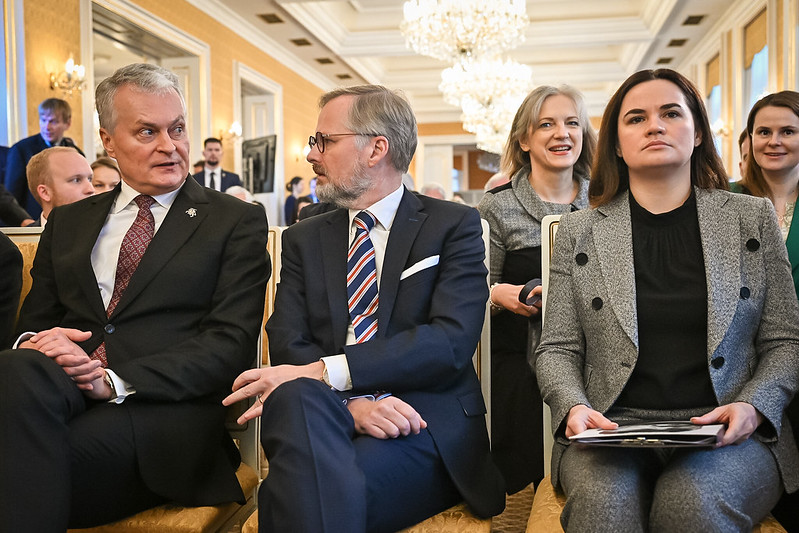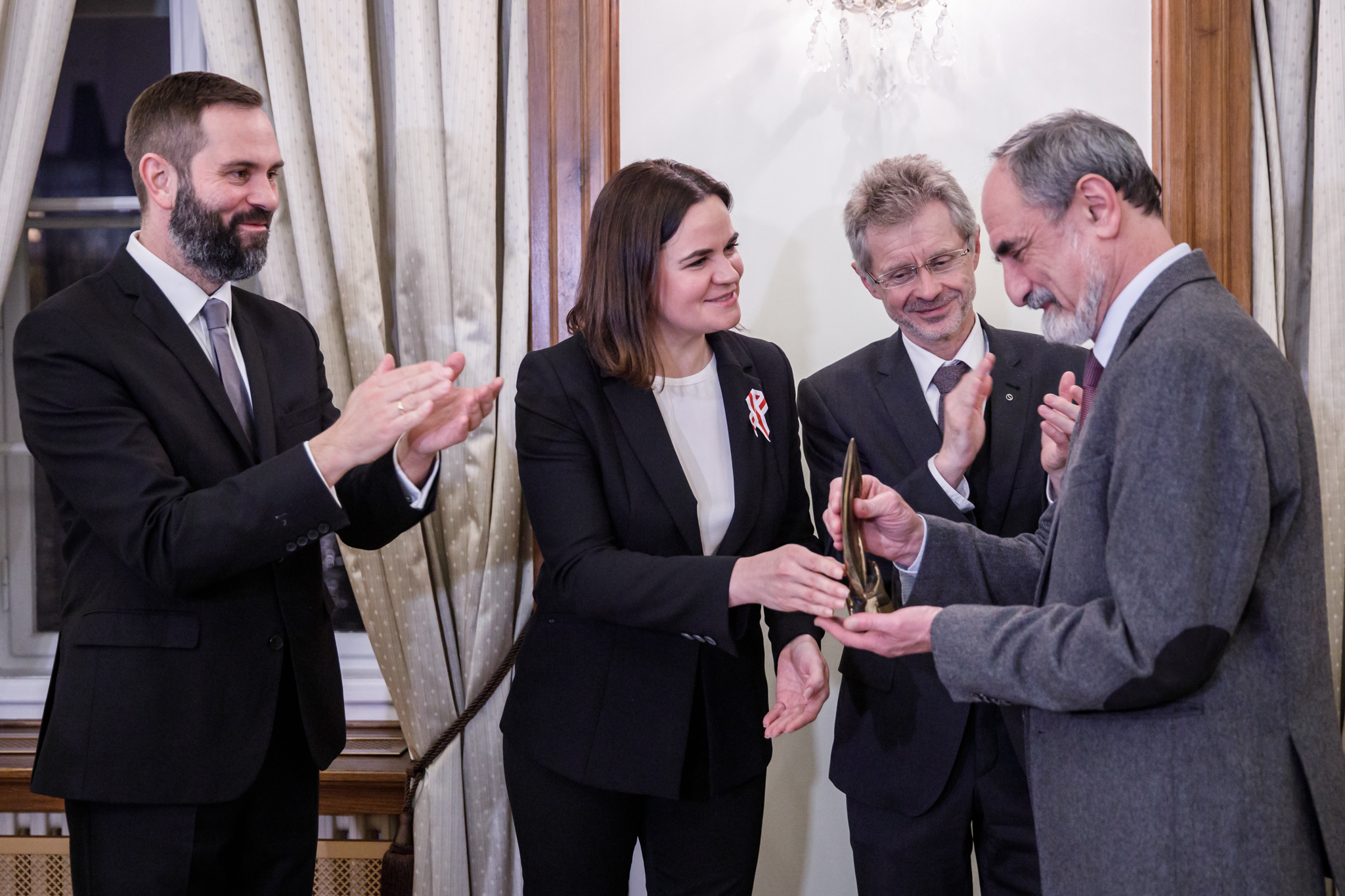
President Nausėda, Prime Minister Fiala, and Tsikhanouskaya at the conference in the Liechtenstein Palace.
Speakers at an international conference on ‘Russia’s Hybrid War Against the Democratic World’ in Prague 16–18 November included Poland’s Prime Minister Mateusz Morawiecki, Lithuania’s President Gitanas Nausėda, Prime Minister Petr Fiala of the Czech Republic, Sviatlana Tsikhanouskaya, leader of the democratic movement of Belarus, French Professor Stéphane Courtois, who edited the seminal Black Book of Communism in 1997, American Professor Nicholas J. Cull and American writer and commentator David Satter. The conference was organised by the Platform of European Memory and Conscience and the Czech Institute for the Study of Totalitarian Regimes, with the support of the Czech government which provided the venue, the Liechtenstein Palace. RNH has been a member of the Platform since 2014, and its academic director, Professor Hannes H. Gissurarson, translated the Black Book of Communism into Icelandic; he has also recently published a short history of Icelandic communism.
Topics at the conference included Russian disinformation as a tool of aggression, the question how to counter Russian disinformation, the experience of communism in the European remembrance perspective, and the question how to deal with the communist past. Three common themes were that after the Russian attack on Ukraine it was even more urgent than before to keep alive the memory of the victims of Soviet communism; and that the meaning of the term ‘totalitarianism’ had to be re-examined and deepened in the light of historical experience; and that it should never be forgotten that the Second World War was started as a result of the Non-Aggression Pact signed in Moscow on 23 August 1939 when Stalin and Hitler basically divided up between themselves most of Europe. Professor Gissurarson chaired the last session, on what more needs to be done. The participants in that session were the Polish historian Dr. Łukasz Kamiński, Romanian philosopher and writer Professor Vladimir Tismăneanu, Ukrainian actress and blogger Yanina Sokolova, English architect Tszwai So, German historian and novelist Nancy Aris and Russian chess grandmaster and human rights champion Garry Kasparov. When introducing Professor Tismăneanu, Gissurarson recalled a remark that Leszek Kolakowski had made to him at a dinner in April 1979: ‘The problem is not that God is dead in the minds of men. It is that the devil is dead in the minds of men. We have little or no awareness of the evil men can do.’ Gissurarson also quoted Arthur Koestler’s remark that statistics do not bleed: therefore it is difficult to convey the sheer horror of totalitarianism.
The Platform held its annual meeting on 16 November, re-electing Polish historian Dr. Marek Mutor as its president. The Czech Institute for the Study of Totalitarian Regimes, a founding member of the Platform, was re-admitted to it, to the great satisfaction of present members. The annual prize of the Platform was given to the Russian institute Memorial which sadly has been dissolved by the Russian authorities. Historian Boris Belenkin, member of Memorial’s Board, received the prize on its behalf. ‘I am pleased that the Prize of the Platform of European Memory and Conscience for the year 2021 is being awarded to this association and that it will be presented to Russian historian Boris Belenkin. It is essential and right to support efforts to seek the truth in history. I consider it symbolical that this is happening in the Czech Republic at the time of the anniversary of the Velvet revolution which brought us freedom and democracy,’ said Miloš Vystrčil, President of the Czech Senate, on this occasion.



